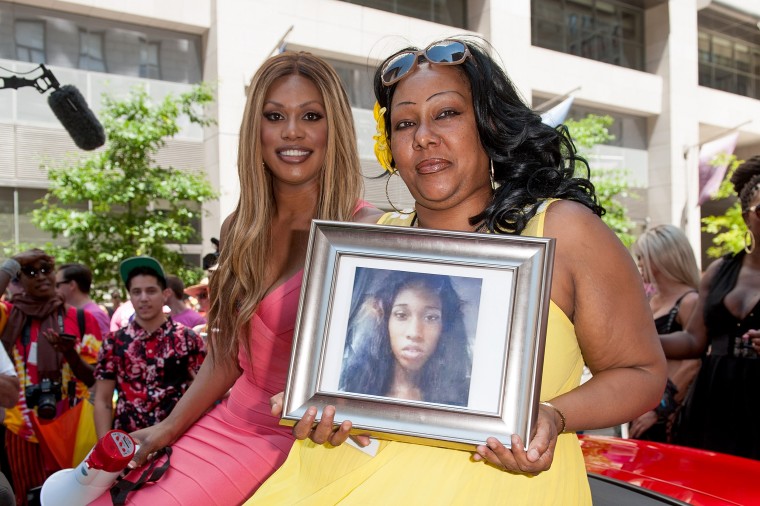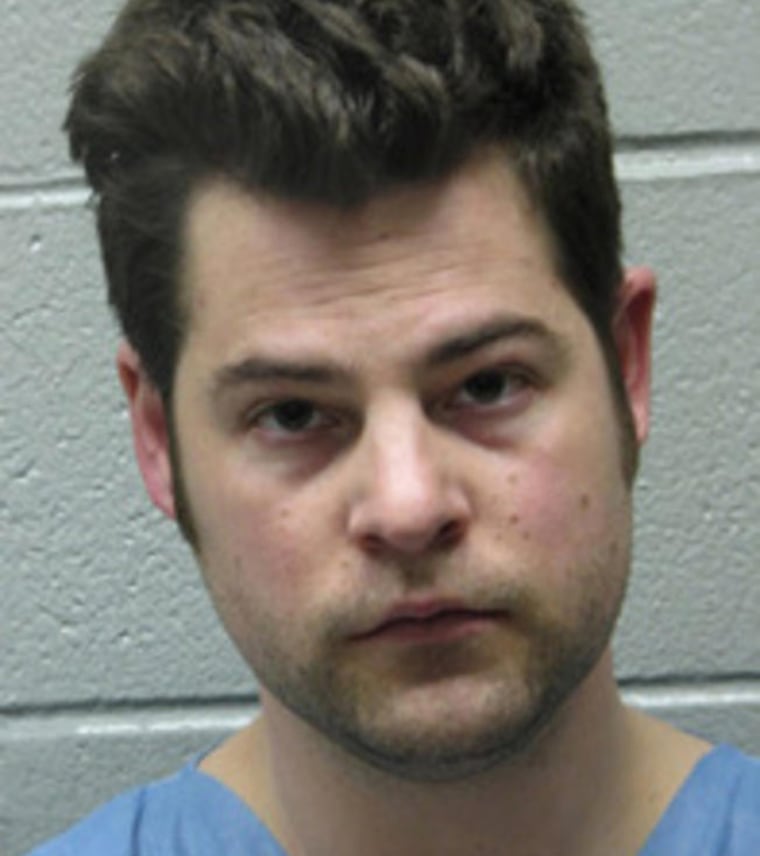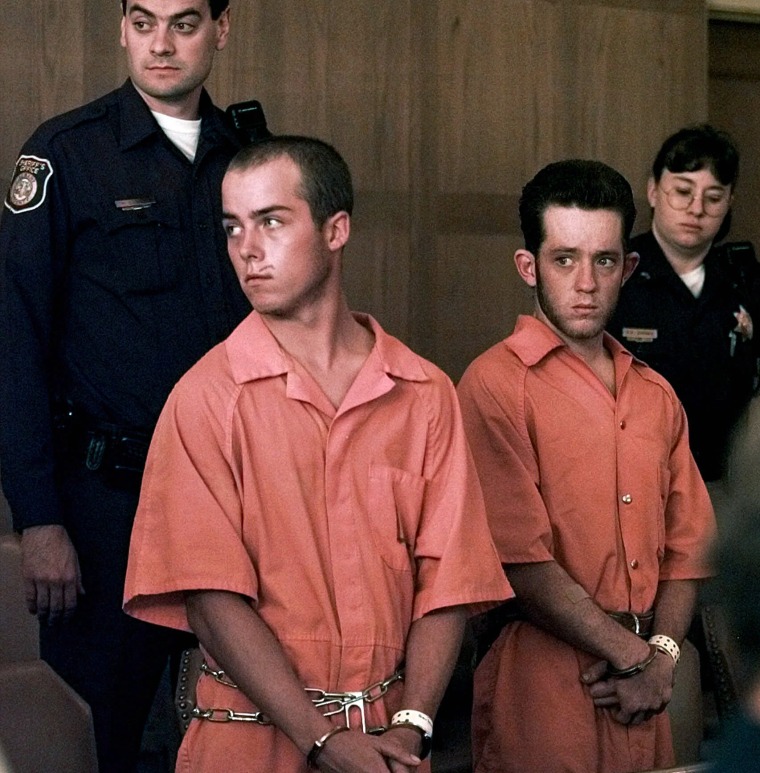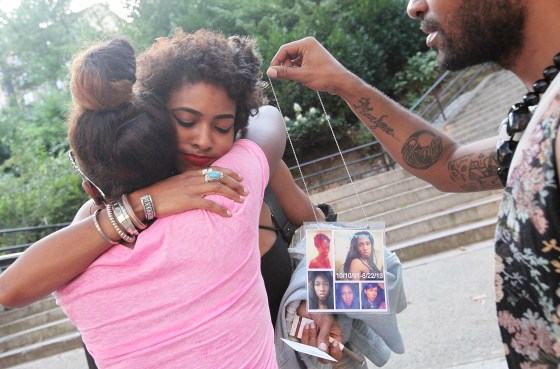Islan Nettles never met James Dixon before the night he murdered her. It was a warm August evening in 2013 — she and some friends were walking in Harlem when Dixon approached and started flirting with Nettles. They continued to chat until one of Dixon’s buddies told him Nettles was transgender. That revelation, he later testified, sent Dixon into “a blind fury.”
He threw Nettles to the ground and brutally beat her. She was rushed to Harlem Hospital with a fractured eye, nose, jaw and skull. By the time she arrived, Nettles, 21, was brain dead. Soon after, she was taken off life support.
At trial Dixon didn’t deny he murdered her, but insisted he was provoked: “I just don't wanna be fooled,” he said in a taped confession. “My pride is at stake.” An indictment didn’t come for more than a year. After initially pleading not guilty to first- and second-degree manslaughter and first-degree assault, Dixon eventually accepted a deal and was convicted of first-degree manslaughter. He could have faced a 25-year prison sentence. Instead, he was given just 12.

"It's not enough. It's a slap in the face," Islan Nettles' mother, Delores Nettles, told DNA Info at the time. "He can go home after those 12 years and see his family… He'll still be a young man in his 30s when he gets out. Islan is gone forever."
The case, and others like it, has prompted New York lawmakers to push for legislation banning the so-called gay and trans panic defenses. Using the strategy, a defense attorney will suggest her client wasn’t to blame for his actions — the victim is the real culprit, because of her actual or perceived sexual orientation or gender identity.
While the gay or trans panic isn’t really used on its own, it’s been employed in about half of all U.S. states as part of claims of self-defense, of insanity or that the defendant was “reasonably” provoked to violence — and it’s resulted in lesser charges and sentences for perpetrators of violent hate crimes.
“The reality is LGBT people are in the fabric of our society, but we’re at risk of being demonized,” New York Assemblyman Daniel O’Donnell, who authored the bill in the Assembly, told NBC News.

In 2009, an Illinois jury acquitted Joseph Biedermann of first-degree murder after he claimed he stabbed his neighbor 61 times for making an unwanted sexual advance. In 2010, Vincent McGee was convicted of manslaughter for smashing Richard Barrett in the head with a radio, stabbing him repeatedly and lighting his body on fire. McGee testified he went into a panic when Barrett dropped his pants and asked him to perform a sexual act.
Just last May, a Texas court handed 67-year-old James Miller 10 years of probation for stabbing and killing his friend Daniel Spencer. His motive: Spencer leaned in for a kiss.
The panic defense has popped up in some of the most notorious anti-LGBTQ hate crimes in America: In 1995, Jenny Jones contestant Jonathan Schmitz was charged with first-degree murder for killing his secret admirer, Scott Amedure, but was only found guilty of second-degree murder. The men who beat and strangled trans woman Gwen Araujo to death in 2002 claimed they had been shocked "beyond reason" when they discovered her birth gender. And Aaron McKinney's lawyer attempted to claim a gay panic defense in the murder of Matthew Shepard, arguing Shepard’s supposed sexual advances drove his client to temporary insanity (Judge Barton Voigt rejected that defense).

The American Bar Association has unanimously called for state legislatures to eliminate the gay and trans panic defenses, insisting they have no basis in medicine or psychology and therefore shouldn’t be used to argue insanity or diminished capacity. To date, though, only California and Illinois have banned the practice.
New York’s SB 50 is part of a larger LGBTQ rights agenda New York Gov. Andrew Cuomo has advanced this session. Earlier this month, the state legislature passed both a gay conversion therapy ban and the Gender Expression Non-Discrimination Act (GENDA), which adds gender identity to state discrimination and hate-crime laws. Alphonso David, Cuomo’s lead counsel, told NBC News the governor believes the panic defense “has no place in our criminal justice system.”
“He advanced legislation to ban this repugnant practice last year, and we will continue to push the Legislature to pass the bill once and for all," David said.
In more recent years, the panic defense has increasingly been employed to mitigate the murders of transgender people like Islan Nettles, fueling the ugly myth of the predatory trans woman.
“Transgender and gender-nonconforming people already face astronomical rates of violence, [but] they are doubly victimized by courts that allow these unconscionable excuses for assault,” Andy Marra of the Transgender Legal Defense and Education Fund explained. “It is time to ban these defenses in New York once and for all.”
There are also efforts to get the panic defense prohibited in federal court: Sen. Edward Markey, D-Mass., sponsored the Gay and Trans Panic Defense Prohibition Act of 2018, claiming these strategies, “seek to partially or completely excuse crimes such as murder and assault.”
“Murdering or assaulting anyone because of their sexual orientation or gender identity is not a defense — it is a hate crime,” said Rep. Joe Kennedy, D-Mass., a co-sponsor of the bill. “Legal loopholes written into our laws that seek to justify violent attacks against our gay, lesbian, bisexual, and transgender neighbors should never have existed in the first place.”
There are critics of the ban, including some civil rights advocates.
“Formally barring gay panic provocation arguments from the criminal courtroom is not a good idea, because it will not keep the jury from considering gay panic arguments,” George Washington University law professor Cynthia Lee wrote in the UC Davis Law Review. "Attempts to control the matters that a jury considers by prohibiting the introduction of specific topics at trial simply do not work.”
New York Assemblyman Joe Lentol, D-Brooklyn, who voted against the ban last year, told the New York Law Journal that attorneys should be allowed to use the strategy "when necessary” to provide a rigorous defense for their clients.
But O’Donnell, a former criminal defense attorney, disagrees with his Assembly colleague.
“I understand not wanting to limit someone’s right to raise issues in their defense,” he said, "but if the issue is that the victim is gay and they deserved to die, they don’t have that right.”
With the Democrats in control of both houses, SB 50 has a reasonable chance of passing. But judicial activists know it’s only the beginning.
“Legislating away hate doesn’t change behavior, we know that,” Shijuade Kadree, chief advocacy officer for New York’s Lesbian, Gay, Bisexual & Transgender Community Center, said. “This is not a one-and-done. We need to set policies that get to the root causes of the hate and violence against our community.”


